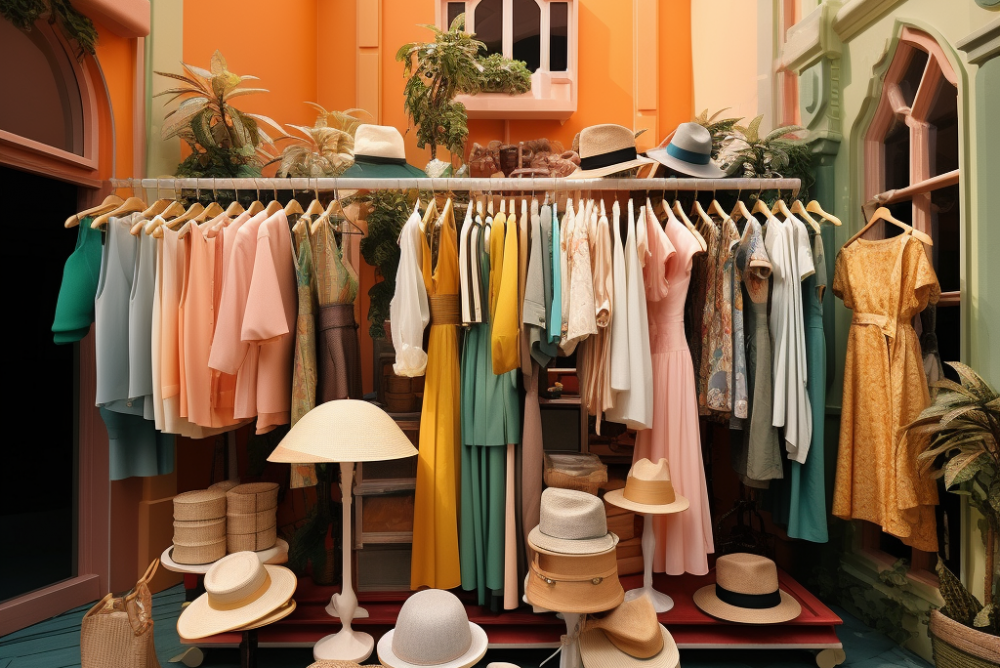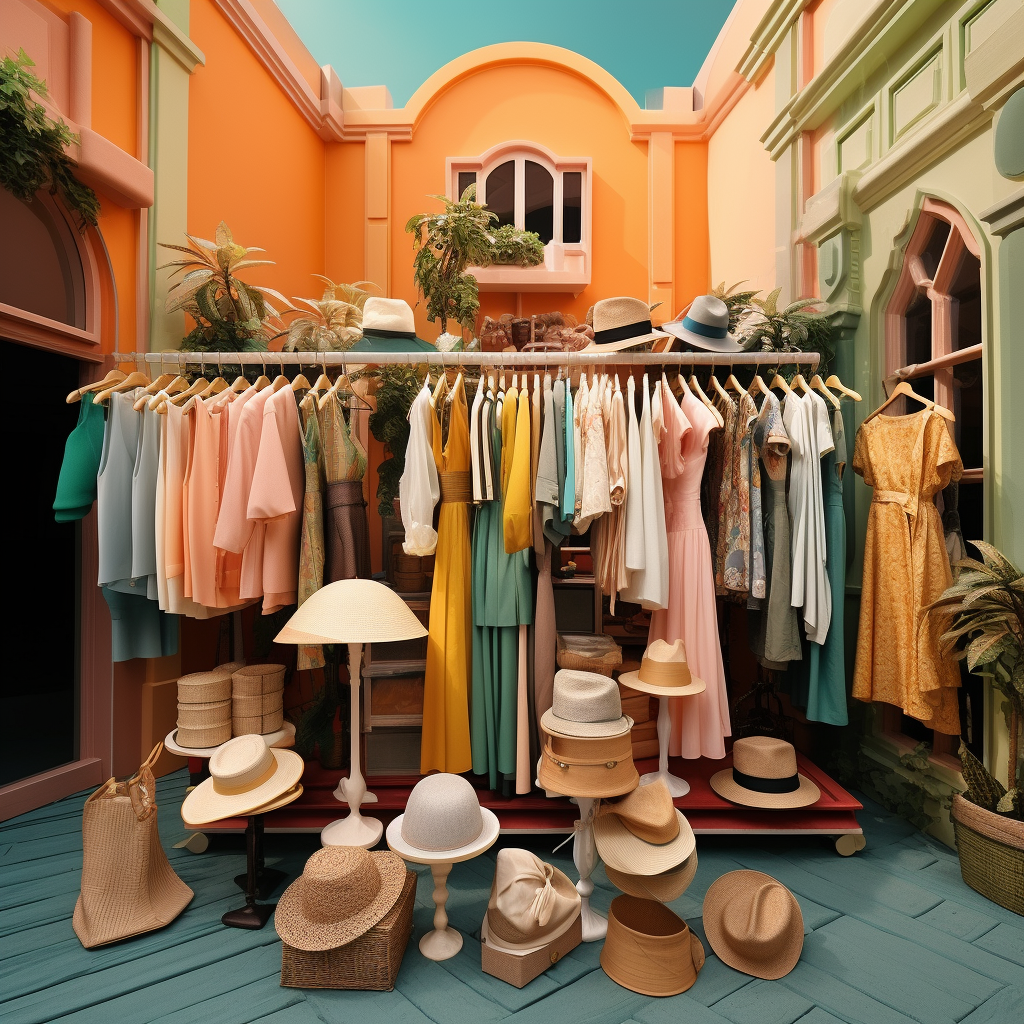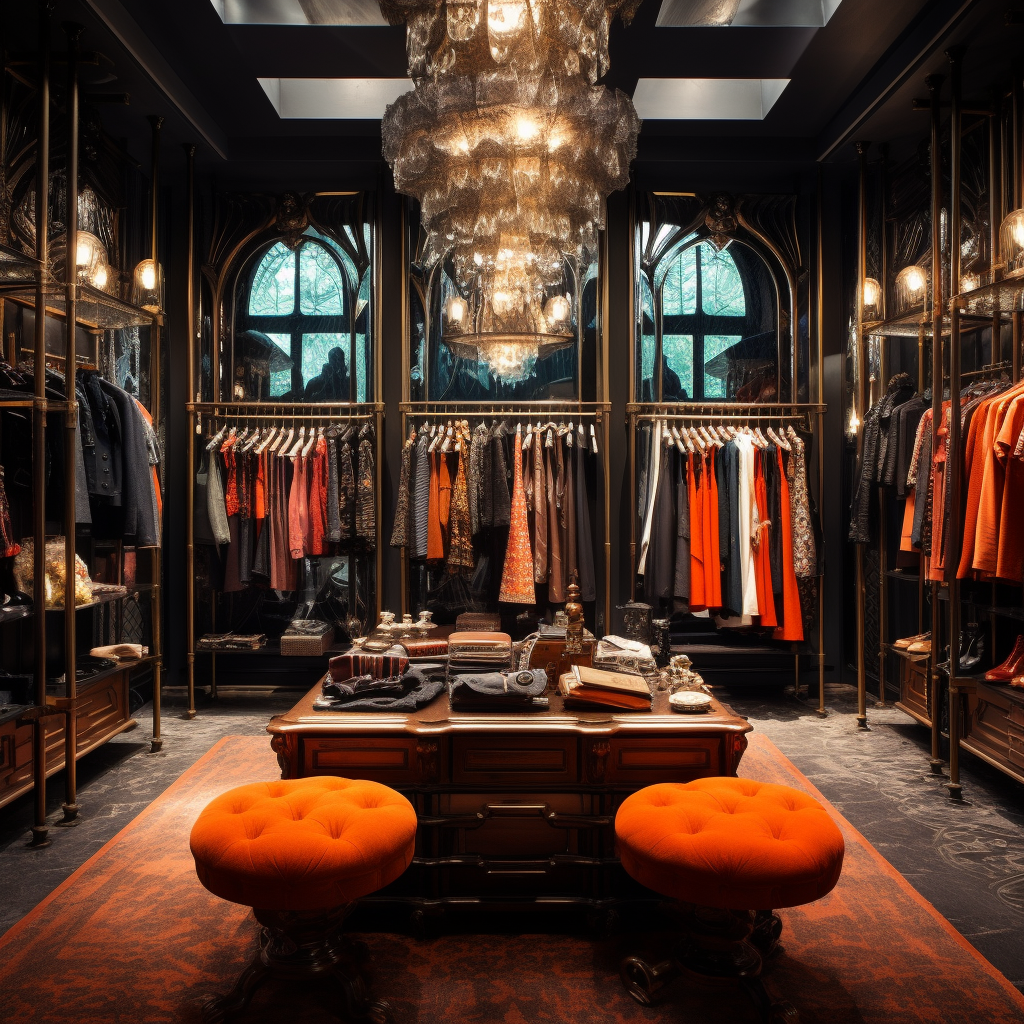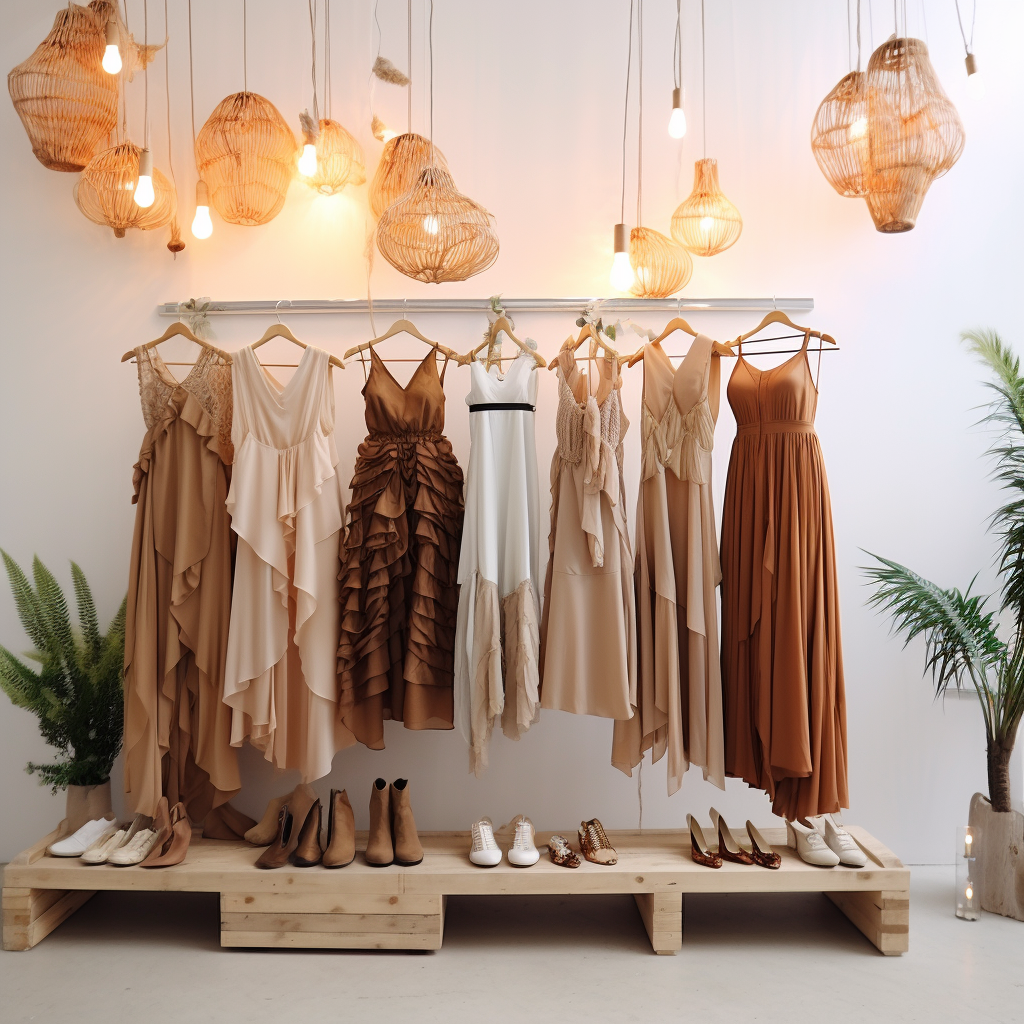Exploring the World of Clothing Fashion Boutiques: Past, Present, Future


The world of fashion is a vibrant, ever-changing landscape that captures the pulse of society, reflects cultural shifts, and even instigates change itself. At the heart of this dynamic industry are clothing fashion boutiques, unique retail spaces that offer a meticulously curated selection of apparel and accessories. Unlike mass-market retail stores, boutiques are known for their distinct personality, exclusivity, and a personalized customer experience.
Fashion boutiques have been instrumental in shaping and steering fashion trends throughout history. They have been the launchpad for many renowned designers and have introduced the world to styles that have left an indelible mark on the fashion industry.
In this article, we delve into the realm of clothing fashion boutiques. We explore the different types of boutiques, their purposes, and the unique advantages they offer to both customers and the fashion industry. By the end of this article, you will have a comprehensive understanding of the role, significance, and potential of fashion boutiques in the global fashion landscape.
History of Clothing Fashion Boutiques
The origin of fashion boutiques dates back to the 18th century in Paris, France, the city often revered as the fashion capital of the world. The term 'boutique' itself is French, meaning a small shop. These were small stores selling luxury items like dresses, hats, and accessories that catered to the fashion-conscious elite of society.
The 1960s saw a significant shift in the boutique industry. This era, known as the 'Boutique Movement,' marked the emergence of boutiques as we know them today. They became platforms for young designers to showcase their unique styles, breaking away from mainstream fashion norms. Boutiques like Biba and Granny Takes a Trip in London and Paraphernalia in New York were the epicenters of this movement.
Fast forward to the 21st century, the advent of the internet and digital technology has significantly transformed the boutique landscape. Online boutiques have gained immense popularity, offering customers the convenience of shopping exclusive styles from the comfort of their homes, thus expanding the reach of boutiques beyond geographical boundaries.
Despite the changes over the centuries, the core essence of boutiques remains the same - offering a curated, personalized fashion experience to customers. They continue to be a significant influence in shaping global fashion trends.
Types of Clothing Fashion Boutiques
Fashion boutiques are as diverse as the fashion industry itself, each offering a unique shopping experience and a distinctive array of styles. Let's walk through some of the most common types of clothing fashion boutiques:
High-End Luxury Boutiques
These boutiques stock exclusive, often limited-edition pieces from luxury brands and high-end designers. Customers frequent these boutiques for their exceptional quality, cutting-edge design, and brand prestige. Examples include boutiques for Chanel, Dior, and Louis Vuitton.
Vintage Boutiques
Vintage boutiques specialize in selling second-hand clothing from previous decades. These boutiques are treasure-troves for fashion enthusiasts, offering unique, timeless pieces that echo the style of past eras. They are also a sustainable shopping option, contributing to the circular economy by giving a second life to pre-loved clothing.
Online Boutiques
The digital age has given birth to a new type of boutique - the online boutique. These boutiques operate entirely over the internet, offering a convenient shopping experience to customers worldwide. They often utilize social media platforms and influencer collaborations to market their products. Boutiques like Revolve and ASOS are popular examples.
Brick-and-Mortar Boutiques
These are traditional physical stores that offer customers a tangible and immersive shopping experience. They allow customers to touch, feel, and try the clothes before buying, backed by personalized service from store assistants. Many high-end and vintage boutiques fall into this category.
Purposes of Clothing Fashion Boutiques
Clothing fashion boutiques serve several purposes, both for the fashion industry and for customers. Here are a few key roles they play:
Showcasing Emerging Designers
Fashion boutiques often serve as a platform for emerging designers to showcase their work. Many successful designers today got their first break in small boutiques. By stocking pieces from less-known designers, boutiques help to diversify the fashion industry and promote new talent.
Offering Unique and Exclusive Styles
Boutiques are known for their carefully curated collections that offer customers unique and exclusive styles not commonly found in mass-market stores. This exclusivity draws customers who are looking for distinctive clothing that sets them apart.
Providing a Personalized Shopping Experience
Boutiques are famous for their personalized customer service. Store assistants often know their customers by name and can offer tailored advice based on the customer's style and preferences. This personalized experience is a big draw for many customers.
Promoting Sustainable Fashion
Many boutiques, particularly vintage and second-hand boutiques, contribute to promoting sustainable fashion. By selling pre-loved clothing, these boutiques help to reduce the fashion industry's environmental footprint and encourage consumers to make more sustainable purchasing decisions.
The purpose of fashion boutiques extends far beyond selling clothing. They contribute to the diversity, creativity, and sustainability of the fashion industry, providing a unique shopping experience that sets them apart from mass-market retailers.
Advantages of Clothing Fashion Boutiques
Clothing fashion boutiques offer numerous advantages to customers, designers, and the fashion industry at large. Here are some key benefits:
Unique Styles and Brands
Fashion boutiques often stock clothing from emerging designers, independent brands, and foreign labels, offering unique styles that aren't found in mainstream stores. This allows consumers to discover and embrace new trends, diversify their wardrobes, and express their personal style.
Personalized Shopping Experience
One of the hallmarks of boutiques is their personalized service. Boutique staff often develop a deep understanding of their customers' preferences and can provide tailored fashion advice. This level of personal attention and expertise enhances the shopping experience, helping customers make confident and satisfying purchase decisions.
High-Quality Materials and Craftsmanship
Boutiques, particularly high-end and luxury boutiques, are known for their focus on quality over quantity. The clothing they sell is often made from premium materials and showcases exceptional craftsmanship. This commitment to quality provides customers with lasting, timeless pieces that represent a good long-term investment.
Supporting Sustainable and Ethical Fashion
Boutiques, especially those specializing in vintage or upcycled clothing, play a crucial role in promoting sustainable fashion. They help extend the lifecycle of clothes and reduce waste, encouraging a more ethical and conscious approach to fashion consumption.
The Future of Clothing Fashion Boutiques
In a world where fashion trends are increasingly dictated by digital influences, what does the future hold for clothing fashion boutiques? Here are a few possible trends:
Greater Emphasis on Online Shopping
The COVID-19 pandemic has accelerated the shift towards online shopping, a trend that's likely to continue into the future. More boutiques may establish online platforms, offering virtual fitting rooms, personalized recommendations based on browsing history, and other features that replicate the in-store experience.
Sustainability as a Core Value
With increasing awareness about the environmental impact of the fashion industry, boutiques may place more emphasis on sustainability. This could include stocking more eco-friendly brands, offering clothing rentals, or providing repair services to extend the lifespan of clothing.
Enhanced In-Store Experiences
For brick-and-mortar boutiques, creating an immersive, memorable in-store experience may become even more critical. This could involve hosting fashion events, displaying art installations, or using technology like augmented reality to enrich the shopping experience.
More Personalization
Using data analytics and AI, boutiques could further personalize the shopping experience, offering custom-made clothing or personalized style advice based on a customer's past purchases and preferences.
Despite the challenges posed by fast fashion and e-commerce, clothing fashion boutiques have a bright future. Their unique appeal - a curated selection of unique styles, personalized service, and a focus on quality and sustainability - is something that mass-market retailers can't easily replicate.
Conclusion
Clothing fashion boutiques have played a significant role in the fashion industry for centuries, and they continue to be a driving force in shaping fashion trends, promoting emerging designers, and offering unique, personalized shopping experiences. They are the vibrant heart of the fashion industry, combining creativity, craftsmanship, and customer connection in a way that is truly unique.
Despite the challenges and transformations brought about by digital technology and changing consumer habits, boutiques have shown remarkable resilience and adaptability. The future of fashion boutiques looks promising, with a continued focus on personalization, quality, and sustainability.
In this era of fast fashion and mass production, boutiques offer a refreshing alternative. They remind us that fashion is not just about clothing, but also about art, expression, and individuality. As we look to the future, it's clear that boutiques will continue to be a vital part of our fashion landscape, helping us explore new styles, discover new designers, and express our unique personalities.
We hope this article has given you a deeper understanding of and appreciation for clothing fashion boutiques. Whether you're a fashion enthusiast, a boutique owner, or simply curious, we hope you've found this exploration informative and engaging.





-500x500.jpg)
-500x500.jpg)
-500x500.jpg)
-500x500.jpg)
-500x500.jpg)